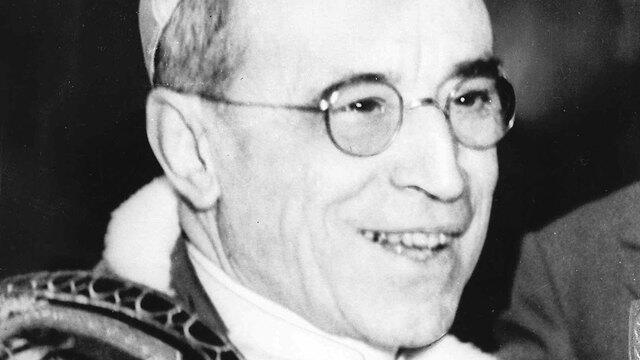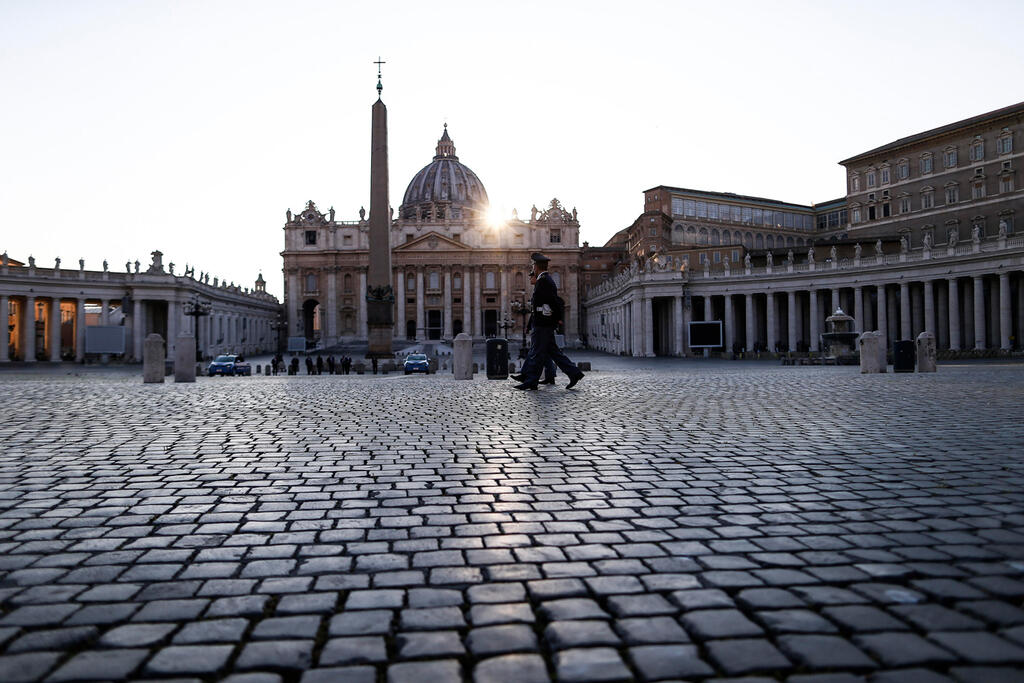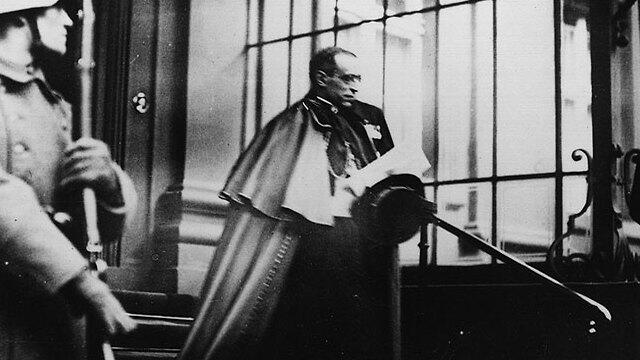Getting your Trinity Audio player ready...
A letter from 1942, discovered about a year ago in the Vatican archives and published last week, conclusively confirms that Pope Pius XII was informed about the Nazi concentration camps during World War II but chose to remain silent.
More stories:
The letter, sent by the Church's representative in Germany Rev. Lothar Koenig, and found among the private papers of the Pope, read that at least 6,000 people, " above all Poles and Jews," were being killed daily at the Auschwitz concentration camp in Poland.
Pope Pius XII, who held his seat during World War II, has been accused by many Jews of remaining silent about the Holocaust or not doing enough to stop it.
The letter, published by the Italian newspaper Corriere della Sera, included an appendix listing the names of clergymen who were held prisoners in the Dachau concentration camp near Munich, mentioned the Auschwitz extermination camp in Poland, and detailed the thousands of Poles and Jews murdered by the Nazis in Belzec.
The purpose of the letter, sent on December 14, 1942, was to inform the Vatican about the persecution of the Church in Germany. It has only come to light now because researchers had difficulties tracing down the letter’s author, who signed it as "Your Lothar," and addressed it to a "Dear Friend."
Despite the news of the Nazi regime’s atrocities reaching the ears of Pope Pius XII prior to the letter in question, the information it contained was especially significant because it came from a reliable source of the Catholic Church in Germany, which was considered “in the heart of the enemy territory,” explained Giovanni Coco, a Vatican archivist who discovered the letter.
According to Coco, German members of the clergy were a most reputable source for the Pope at the time, to whom he felt “particularly close,” with his personal secretary, Giovanni Coco, a Vatican archivist who discovered the letter, being an example of that.
Coco also noted it’s impossible to know whether Pope Pius did indeed read the letter with absolute certainty, but that he’s "99 percent sure" because it was handed to his personal secretary, who always conveyed information to the Pope directly as his “right-hand man.”
The letter likely serves as a “smoking gun," the most compelling evidence for the claims of several historians saying that Pope Pius XII knew about the Holocaust as it was happening. Some researchers have argued in the past that Pius didn’t wish to confront Hitler because he feared communism more, believed that the Nazis would ultimately win the war, and wanted to avoid alienating millions of German Catholics or Nazi sympathizers.
On the other hand, other historians have argued that Pius remained publicly silent but covertly helped local Catholics save Jews from the Nazis, and that he was also concerned about potential persecution against the Catholic Church by Hitler as the war progressed.
The new discovery is one of the most significant findings connected to the archives since the current Pope, Francis, ordered the opening of Pius's archives in 2019, saying the Catholic Church “isn’t afraid of history."
In 2010, then-Pope Benedict XVI claimed that Pope Pius XII “saved more Jews than anyone," Benedict later said in an interview that the Vatican conducted an internal examination of documents from Pius’s time as Pope, from which no evidence was found to support “negative claims,” against him.
NEWLY RELEASED LETTERS SHED LIGHT ON THE POPE DURING WWII
In 2013, British author Gordon Thomas argued that Vatican documents made available to him suggested that Pope Pius XII was involved in saving Jews. According to Thomas, he gained access to previously undisclosed Vatican documents and interviewed survivors, priests, and other individuals who had previously remained silent on the matter.
Thomas claimed that from the materials he collected showed that Pius gave his blessing to hiding Jews in Catholic monasteries across Europe and oversaw a secret operation by priests who risked their lives to save Jews. For example, he alleged that hundreds of Jews in Italy and 2,000 Jews in Hungary were provided with fake papers presenting them as Catholics. He also argued that 4,000 Jews were hidden in Italian monasteries and provided with food, clothing, and medicine.








